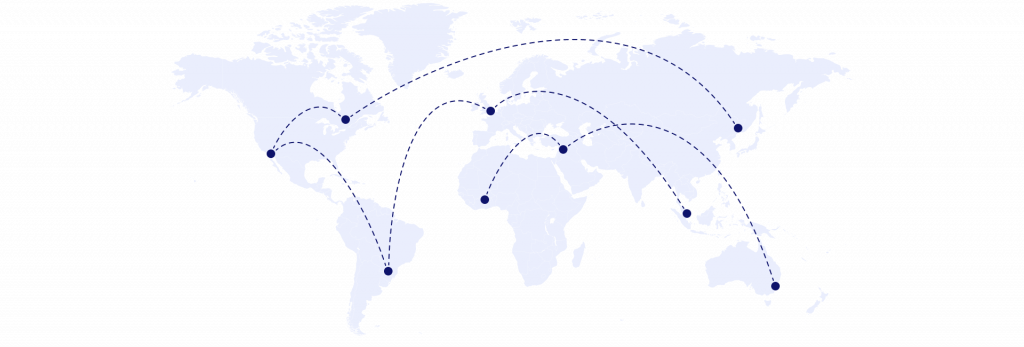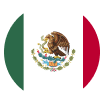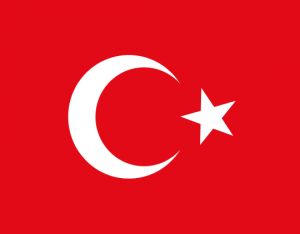China e-commerce calendar: Major festivals and holidays
Last updated: 4 Nov 2025
Tap into China’s thriving e-commerce market by leveraging key festivals and strategic planning.
Key takeaways
- China’s booming e-commerce market sees sales spikes during cultural and shopping festivals
- Festivals rooted in tradition and modern events like Singles’ Day present massive opportunities for brands to drive visibility and sales
- Many key Chinese festivals follow the lunar calendar, which means the exact dates can vary from year to year
- Strategic marketing, tailored promotions and inventory preparation are crucial to capturing the growing demand during peak seasons

China is one of the biggest online retail markets in the world. Over 82.3% of Chinese internet users have shopped online at least once.
During Chinese holidays, e-commerce sales surge as people have more time and purpose to buy products. While some of the famous e-commerce holidays celebrate China’s traditional festivals, other holidays like Alibaba’s 11:11 are shopping events created to boost sales.
If you’re planning to take your brand to China, it’s a good idea to keep a copy of China’s e-commerce calendar and incorporate it in your marketing campaigns.
Before you mark the dates, keep in mind that many traditional Chinese festivals follow the lunar calendar, which doesn’t exactly align with the modern Gregorian calendar, so festival dates can vary from year to year.
Table of Contents
Quarter 1: January to March
Lunar New Year
Date: Usually January – February
Next on 17 February
The Lunar New Year, which is also known as the Spring Festival, is a week-long holiday in China. In 2026, it’ll be the Year of the Horse. The 15-day holiday period is celebrated in many other countries other than China, including South Korea, Japan, Singapore and Vietnam.
The new year is a time for family reunions, friendly dinners and gift giving. While red envelopes with cash are popular, other gifts are slowly gaining popularity too. Foreign brands can use this time to share marketing messages that align with local values.
The total value of online retail sales exceeded CN¥800 billion during the 2024 New Year, marking a 9% increase since 2023. There were also 908 million users accessing the internet daily during the Chinese New Year.
Valentine's Day
Date: 14 February
While China has its own Valentine’s Day which is celebrated later in the year, the international Valentine’s Day is also gaining popularity in the country, especially among millennials and Gen Z. Brands use the day to offer discounts on couples’ items, gifts, luxury items and romantic experiences.
International Women’s Day
Date: 8 March
International Women’s Day has been rebranded in China as “Goddess Day” (女神節) or “Queen’s Day” (女王節). In the past few years, it has become a major e-commerce event, clearly reflecting the increasing purchasing power of women in China.
Brands use the day to offer extensive sales on products targeted towards women. Most marketing campaigns follow the ‘self-care’ theme and encourage women to buy products for themselves.
If your brand primarily targets women, it can also be a good time to launch your brand in the Chinese market and get more visibility.
Quarter 2: April-June
520, Internet Valentine’s Day
Date: 20 May
520 Valentine’s Day is a virtual holiday made popular by Chinese netizens and is different from the traditional Qixi festival. The numbers 5-2-0 are pronounced (wǔ èr líng), which sounds very similar to 我爱你(wǒ ài nǐ), which means ‘I love you’ in Chinese.
According to a survey, 80% of people expect to receive gifts during 520 and 70% readily purchase gifts from their partners.
Brands in jewellery, cosmetics, fashion, and chocolates can capitalize on this sales event and connect with young Chinese consumers.
Dragon Boat Festival
Date: May – June
The Dragon Boat Festival is celebrated on the 5th day of the 5th lunar month, every year. The festival is full of dragon boat races, sticky rice dumplings (zongzi), and deep-rooted traditions.
Apart from running special discounts, you can use the time to share campaigns that create a sense of nostalgia and connect emotionally with Chinese customers.
- Open 15+ local currency accounts and get paid like a local
- Pay suppliers, partners and staff worldwide in 100+ currencies
- Collect payments for free from 130+ marketplaces and payment gateways, including Amazon, Etsy, PayPal and Shopify
- Take control of spending with the World Card, a business expense card that saves you more with 1% cashback. Learn more
- Save with competitive exchange rates on currency conversions and transfers
- Lock in exchange rates for up to 24 months for cash flow certainty
Quarter 3: July to September
Qixi Valentine’s Day
Date: July – August
Next on 19 August
Qixi Festival is the actual Chinese Valentine’s Day which is rooted in romantic folklore and celebrated on the seventh day of the seventh lunar month of the year.
Over 70% of customers plan to purchase gifts for their partners during the Qixi Festival with half of them spending over CN¥300–1000. The top categories include digital products, jewellery and skincare or beauty products.
According to Taobao’s 2024 Qixi Festival report, the sale of gold items increased by 255% – and for plush toys it increased by 216%, month on month. Chinese-style gifts and fortune related items also saw a significant increase.
E-commerce platforms see a huge spike in sales leading up to the Qixi Festival and brands try to capitalise on it by offering attractive sales and discounts.
→ Check out our guide to selling on Tmall Global and Taobao.
Quarter 4: October-December
Mid-Autumn Festival
Date: September – October
Next on 25 September
The Mid-Autumn Festival is celebrated every year on the fifteenth day of the eigth lunar month. It’s a public holiday that’s marked by lanterns, moon cakes and family reunions.
Brands in China embrace the festival by offering free lanterns and mooncakes with every order. Some brands even customise the mooncakes with their colours and logos. Since the festival is centred around family, home appliance sales hugely surge during this week.
China National Day / Golden Week
Date: October 1st-7th
The 1st of October marks the founding day of the People’s Republic of China. There’s a week-long public holiday where people are encouraged to travel domestically and visit their families. Occasionally, the Golden Week coincides with the Mid-Autumn festival leading to an 8-day holiday.
As per reports from Pinduoduo, sales for dishwashers increased by 159% in 2023 during the Mid-Autumn festival and Golden Week, as compared to the same period last year. Sales of other home appliances like vacuum cleaners and cloth dryers also increased by 213%. Mobile phones saw a 50% increase in sales.
Travel gadgets and outdoor sports goods saw the biggest increase during the eight day holiday with a 590% year on year growth.
Major e-commerce platforms get significant traffic during the Golden Week and as a result brands prepare their inventory and marketing strategies way in advance to make the most out of the festival where people are ready to make big purchases.
Singles’ Day
Date: 11 November
Singles’ Day is an online shopping festival that originated in China and lands on 11 November each year. Dubbed ‘Anti Valentine’s Day,’ and often known as Double 11 or 11:11 because of the date, the event was created to celebrate single people. It encourages singles to treat themselves as they are – a counter message to the many other holidays year-round dedicated to couples and families.
In fact, based on the sales value and total number of shoppers, Singles’ Day is the biggest online shopping event across the globe.
Alibaba Group stated that it had a record number of shoppers during Single’s Day sales period in 2024. While the total sales revenue number wasn’t released, Alibaba stated that over 45 brands including Apple, Haier, Midea and Xiaomi each surpassed CN¥1 billion (US$138.62 million) in gross merchandising value (GMV).
According to an estimation by data provider Syntun, sales across major e-commerce platforms increased by 26.66% to CN¥1.44 trillion over the Singles’ Day event, which was 10 days longer than last year’s.
→ Take a look at our Singles’ Day guide to prepare your brand for the big sales day.
WorldFirst makes it easy to do business in China
When setting up shop in new territories, you’ll need trustworthy partners to support seamless transactions.
WorldFirst offers your business an easy and secure solution for sending and receiving funds globally. You can trade like a local, making same-day or next-day payments. Collect payments from customers in China and even pay Chinese suppliers with the collected funds – without needing to convert to AUD at all.
You’ll access competitive exchange rates to protect your profit margins with our transparent pricing.
Disclaimer: The information contained is general only and largely our views. Before acting on the information you should consider whether it is appropriate for you, in light of your objectives, financial situation or needs. Although information has been obtained from and is based upon multiple sources the author believes to be reliable, we do not guarantee its accuracy and it may be incomplete or condensed. All opinions, estimates, mentioned products/services and referenced material constitute the author’s own judgement as of the date of the briefing and are subject to change without notice. WorldFirst shall not be responsible for any losses or damages arising from your reliance of such information.


How to find new suppliers for your Amazon business?
Find reliable Amazon suppliers beyond China. Discover new sourcing hubs, vet partners effectively, and pay globally with WorldFirst.
Nov / 2025
Mastering the inventory equation as an Amazon seller
Avoid stockouts, reduce storage costs, and optimise cash flow. Learn how to manage inventory and protect margins as an Amazon seller.
Nov / 2025
From RFQ to delivery: How to protect your margins as an Amazon seller
Protect your margins as an Amazon seller with smarter sourcing. Learn how to manage RFQs, payments, QC, and delivery efficiently.
Nov / 2025Choose a category below for more business, finance and foreign exchange support from WorldFirst.
- Almost 1,500,000 businesses have sent US$500B+ around the world with WorldFirst and its partner brands since 2004
- Your money is safeguarded with leading financial institutions





































